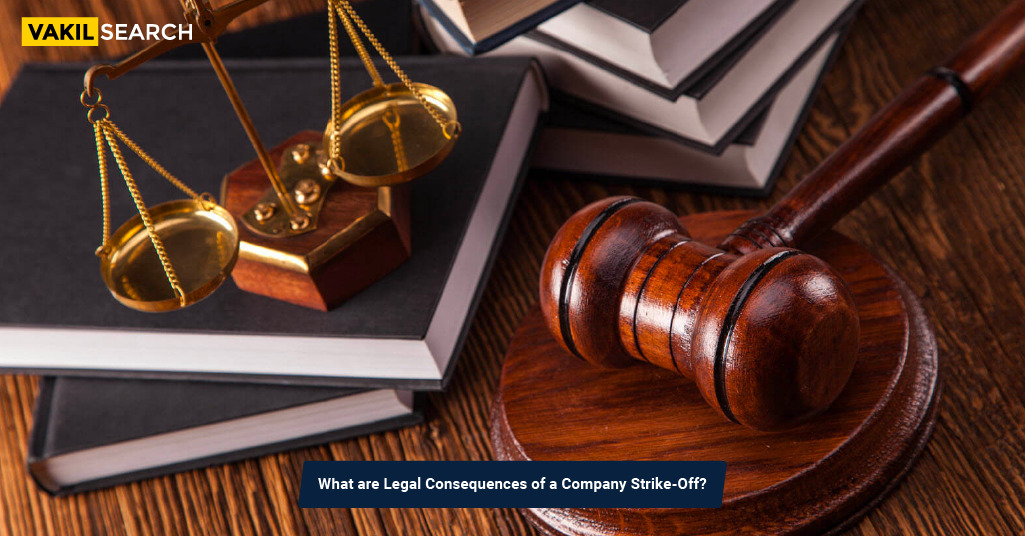In this comprehensive guide, we'll delve into the legal consequences of striking off a company in India, shedding light on liabilities, compliance requirements, and the steps you need to take to navigate the intricate legal landscape.
Closing down a company is a significant decision that can have lasting legal consequences. In India, striking off a company is one of the methods employed for closure, particularly when a company is no longer operational or fails to meet statutory requirements.
While it may seem like a straightforward process, understanding the legal aftermath of a company strike-off is essential to ensure a smooth and legally compliant closure.
Liabilities
One common misconception is that once a company is struck off, its liabilities vanish into thin air. However, this is far from the truth. Liabilities, whether they are outstanding debts, contractual obligations, or pending legal disputes, do not magically disappear with strike-offs.
Here’s what you need to know:
– Liability Continuation: The liabilities of the company continue to exist even after the strike-off. Creditors and stakeholders can still pursue the company for outstanding dues and legal claims.
– Directors’ Liability: Directors of the company may be held personally liable for certain debts and statutory dues, especially if it is proven that they acted negligently or fraudulently.
– Third-Party Claims: If third parties, such as vendors or service providers, have unresolved claims against the company, they can seek recourse through legal channels.
Compliance Matters: Dotting the I’s and Crossing the T’s
Compliance with legal requirements is crucial throughout the strike-off process. Failure to adhere to these requirements can result in legal complications. Here are the key compliance matters to consider:
– Financial Statements and Annual Returns: Before applying for strike-off, ensure that all financial statements and annual returns are up to date and filed with the Registrar of Companies (ROC). Any pending filings can hinder the strike-off process.
– Clearance of Dues: Settlement of all outstanding dues, including taxes, statutory payments, and creditors’ claims, is imperative. This includes clearing any pending income tax liabilities.
– Closure of Bank Accounts: Close the company’s bank accounts and ensure there are no financial transactions post-closure.
– No Pending Litigations: Verify that there are no ongoing legal proceedings, disputes, or investigations against the company. Pending litigations can delay or obstruct the strike-off.
Public Notices
Transparency is key during the strike-off process. To inform stakeholders and the public about the company’s closure, the following steps are crucial:
– Publish Notices: After applying for strike-off, the ROC will require you to publish public notices in newspapers and the official gazette to inform creditors and other interested parties about the company’s impending closure.
– Objection Period: These notices typically include a period during which interested parties can raise objections or claims against the company’s strike-off. This provides an opportunity for creditors to assert their rights.
Directors’ Responsibilities
Directors play a pivotal role in ensuring a legally sound strike-off. Here’s what directors should keep in mind:
– Due Diligence: Conduct a thorough due diligence to identify and address any pending liabilities, disputes, or compliance issues before initiating the strike-off process.
– Statutory Declarations: Directors may need to make statutory declarations confirming that the company has no outstanding liabilities and that all compliance matters have been resolved.
– Cooperation with Liquidator: If a liquidator is appointed, cooperate fully with their efforts to distribute assets and settle liabilities.
Post-Strike-Off Compliance
Legal responsibilities don’t end once the company is struck off. Post-strike-off compliance is equally important:
– Asset Disposal: If any assets remain after settling liabilities, these should be disposed of as per the legal requirements.
– Filing of Final Returns: File the necessary final returns with the ROC to officially conclude the company’s affairs.
– Closure of Tax Registrations: Ensure that all tax registrations are cancelled to prevent any ongoing tax obligations.
| Understanding and fulfilling your legal responsibilities during and after the strike-off process is essential to ensure legal company closure that complies with Indian laws and regulations. |
Frequently Asked Questions (FAQs)
Can a struck-off company be revived?
Yes, it is possible to apply for the revival of a struck-off company through legal processes if there are valid grounds and compliance with the necessary requirements.
What happens to the company's assets after the strike-off?
Company assets, if any, should be used to settle outstanding liabilities. Any remaining assets can be distributed among shareholders, as per the legal order of priority.
How long does the strike-off process take?
The duration of the strike-off process can vary but generally takes a few months. Delays can occur if there are objections or pending compliance matters.
Conclusion
Striking off a company in India is a significant step that carries legal consequences. To navigate this complex terrain effectively, seeking legal and financial guidance from Vakilsearcg experts is advisable.










